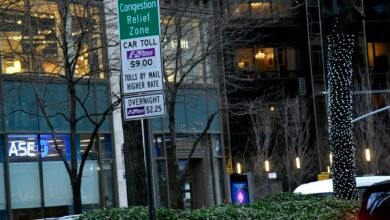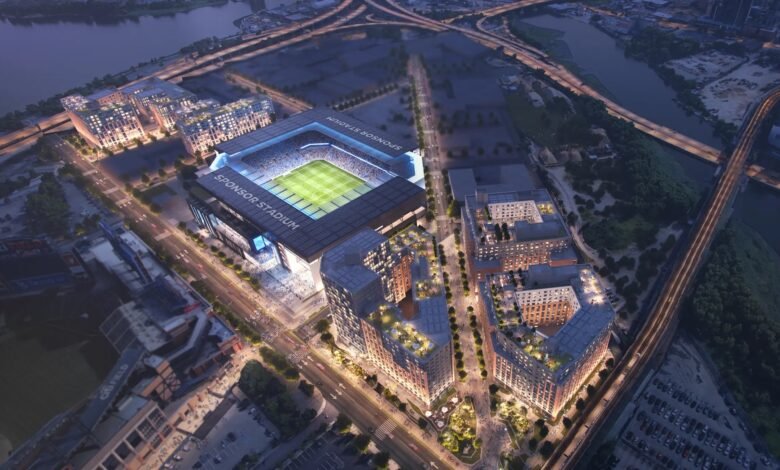
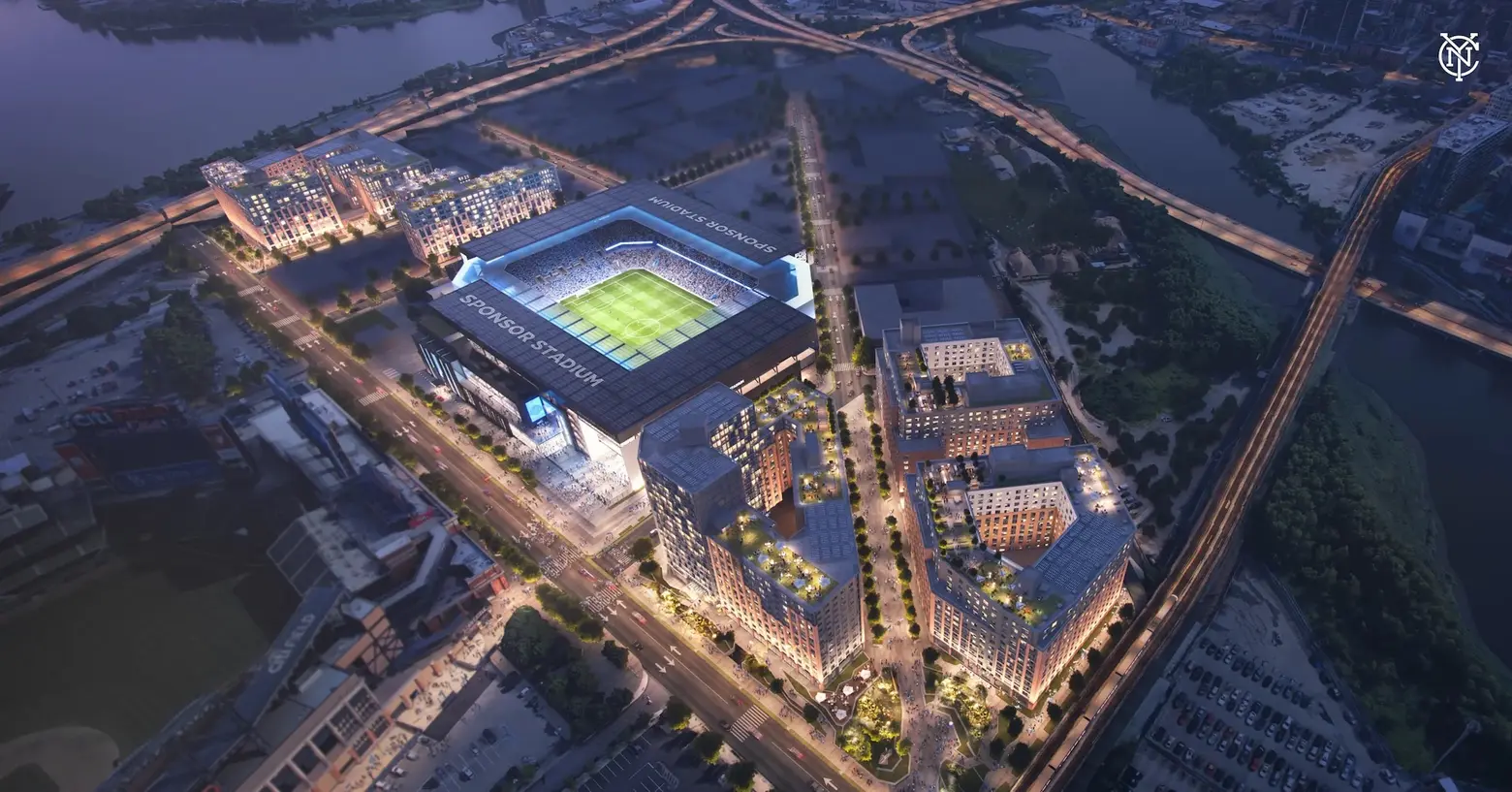
Renderings courtesy of NYCFC
New York City’s first-ever professional soccer stadium in Queens is moving forward. The City Council on Thursday voted to approve a sweeping 23-acre mixed-use development in Willets Point that will bring a seven-story soccer stadium for the NYC Football Club (NYCFC), 2,500 affordable housing units, a school, and a hotel to the neighborhood, once known for its junkyards and landfills. The 25,000-seat stadium is slated for completion by 2027.
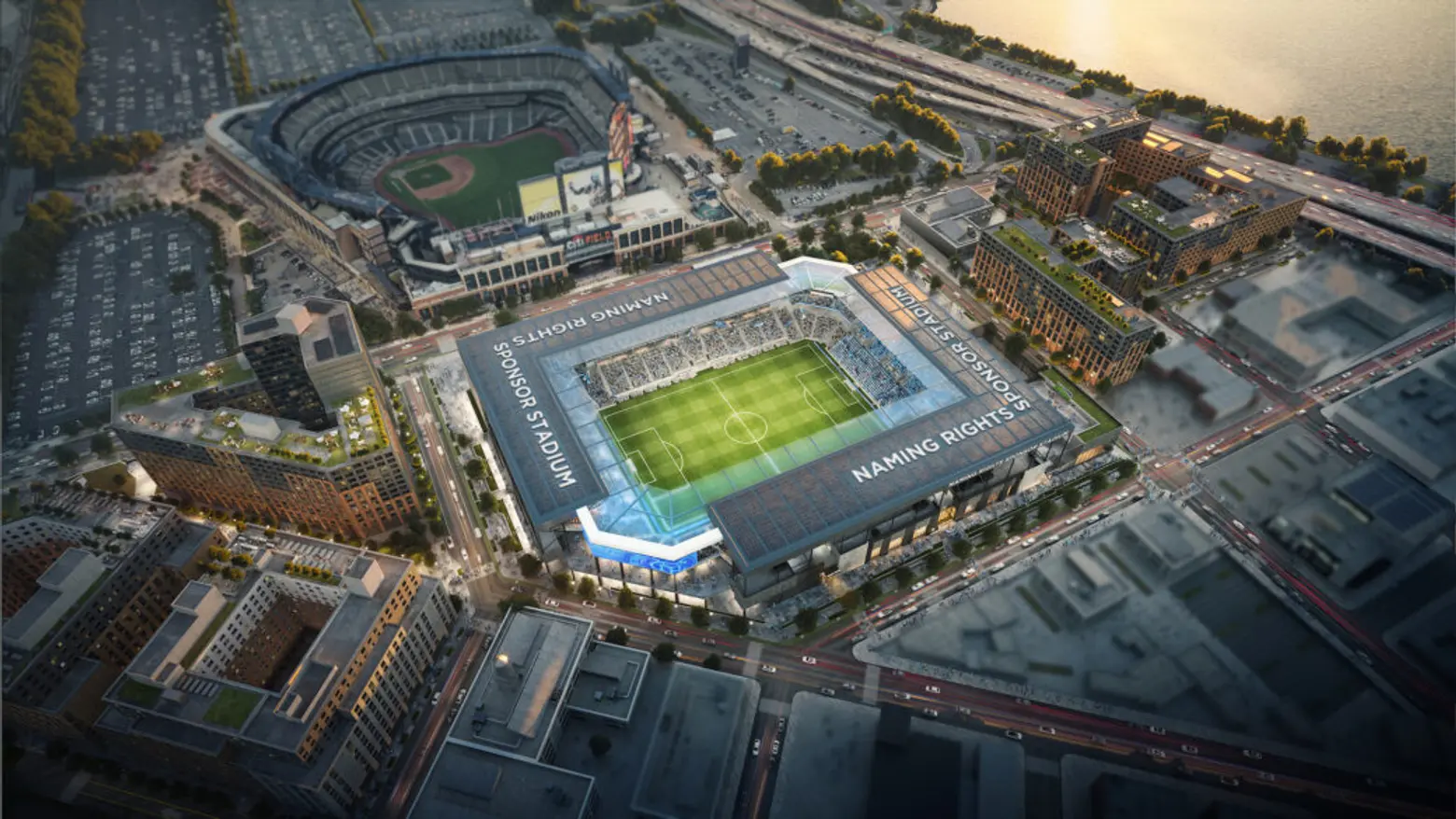
“The revitalization of Willets Point represents a bold step toward a brighter future not only for Queens but for all of New York City, and I proudly stand with our community in championing this transformative initiative,” Council Member Francisco Moya, who represents Willets Point, said in a statement.
“This development marks the largest influx of affordable housing units in 40 years, and it’s more than just about the stadium—it’s about creating a new, thriving neighborhood for my constituents. I am immensely proud of the work that I’ve been able to do to get this project to where it is today.”
Developed by NYCFC, Related Companies, and Sterling Equities and designed by HOK, the stadium will serve as a new home for the soccer team, which plays home games at Citi Field and Yankee Stadium.
Located across from Citi Field, the stadium will feature a striking, “activated cube” entranceway, which will be illuminated on match days with vibrant colors and imagery to provide a dynamic experience for visitors, according to a press release. S9 Architecture and Turner Construction Company are design and construction partners on the project.
The stadium will be the first fully electric stadium in Major League Soccer, as well as the first fully electric professional sports stadium in New York City.
NYCFC will fund the stadium’s construction, which is expected to cost $780 million. The city will lease the land to the soccer team and the developers for 49 years, with the opportunity to extend the lease for an additional 25 years.

“Housing is the goal — and with today’s City Council vote, I’m proud to say that we just scored the goal of the decade,” Mayor Eric Adams said.
“We’re bringing 2,500 affordable housing units, 150,000 square feet of public open space, thousands of good-paying jobs, and the city’s first soccer-specific stadium to a neighborhood in Queens that used to be known for its junkyards.”
The sprawling development will contain a total of 2,500 housing units across seven buildings, 1,400 of which will be subsidized or below market rate, making it the largest affordable housing project in NYC in four decades. Roughly 15 percent of the homes will be set aside for homeless individuals.
The seven buildings will anchor the new neighborhood, which will prioritize pedestrian-centric urban planning principles, with pedestrianized common areas and space for small businesses and recreation.
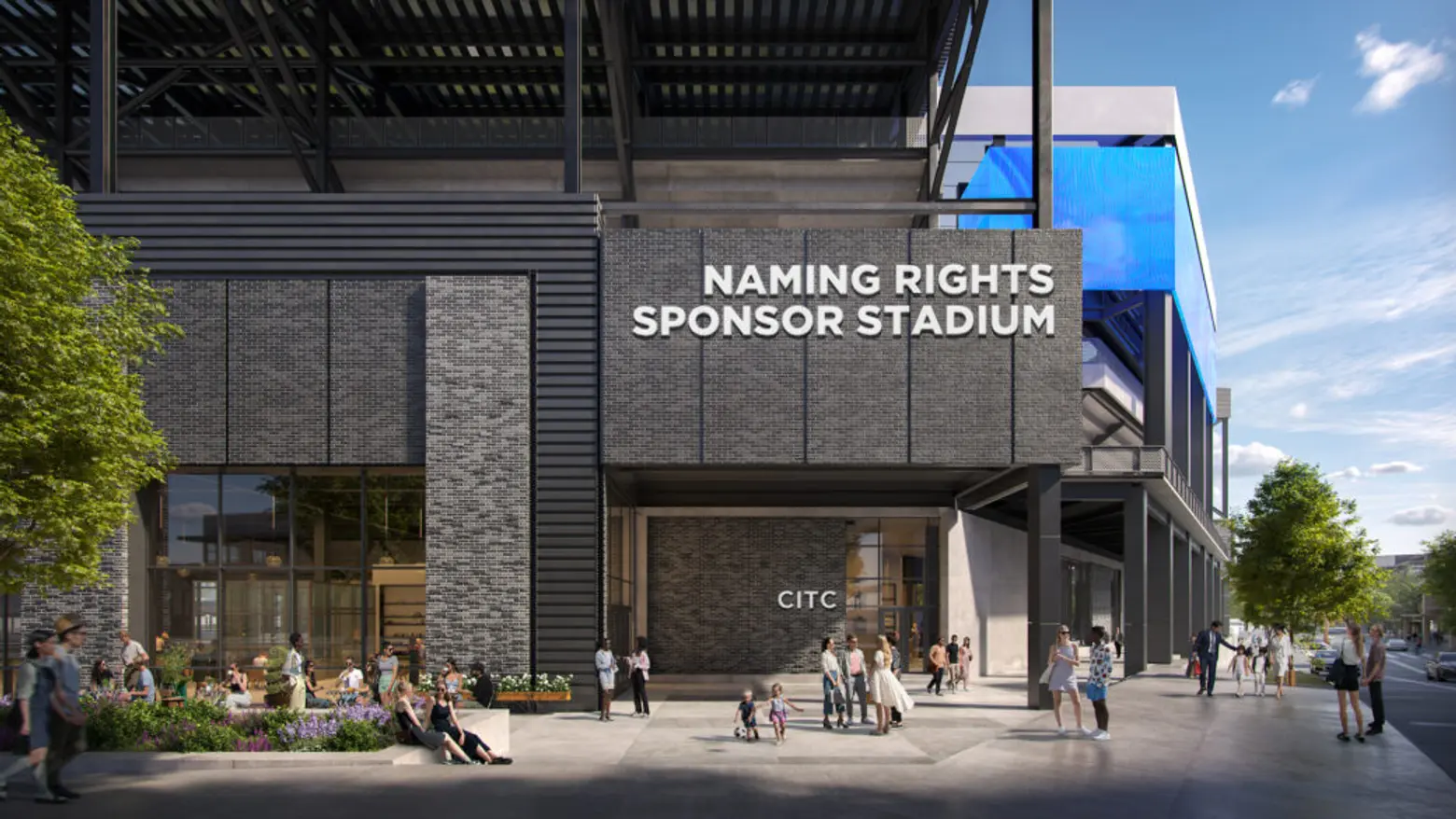
Additionally, the second phase of the development includes a 650-seat public school, 40,000 square feet of public open space, retail space, and a 250-key hotel, as 6sqft previously reported.
The project is expected to generate $6.1 billion in economic impact over the next three years and create 1,550 permanent jobs and 14,200 construction jobs.
Plans to redevelop the neighborhood have been circulating for decades. In 2007, former Mayor Michael Bloomberg revealed plans for a mixed-use development that included apartments, offices, and a shopping mall. It was later tossed out because of a lawsuit.
In January 2019, Mayor Bill de Blasio reintroduced the plan, announcing the addition of affordable housing to the project and the rehabilitation of the site.
The second phase of the plan entered the uniform land use review procedure in October, which put it in front of the public for feedback before being voted on this week by the City Council. The plan now heads to the desk of the mayor for final approval.
Construction on the first phase’s 1,100 units of affordable housing kicked off in December. The Council’s approval on Thursday allows the full 2,500-unit affordable housing plan and redevelopment to move forward.
RELATED:

